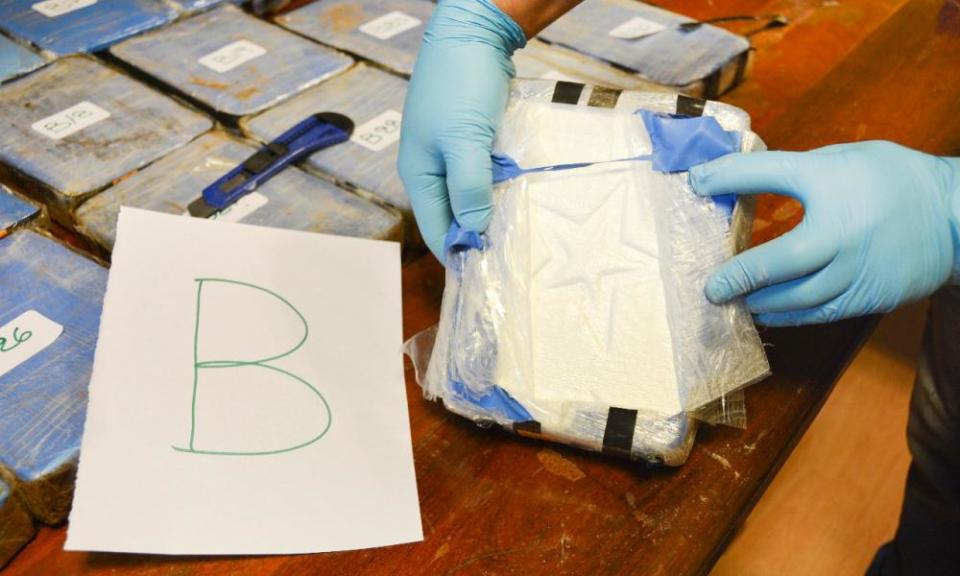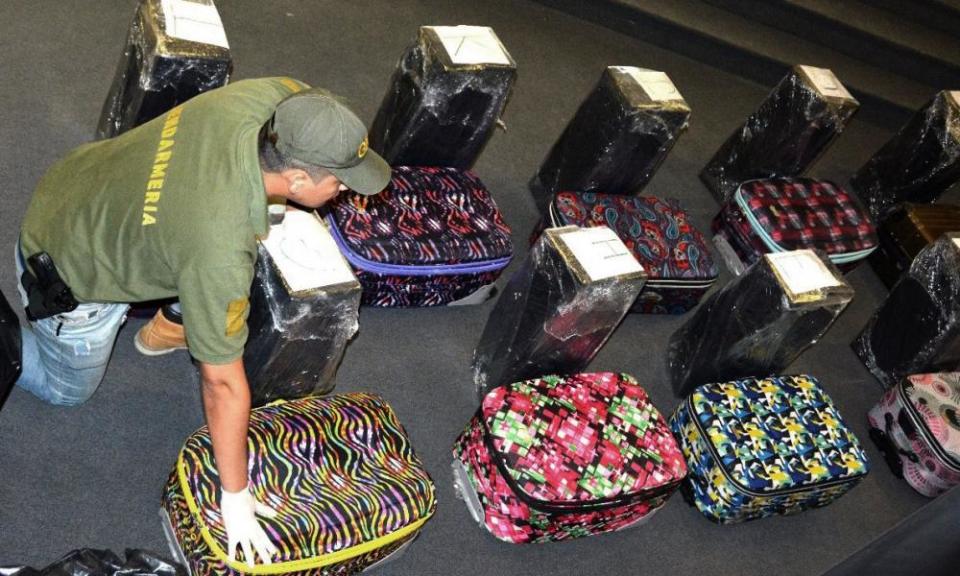Señor K: Russia and Argentina split over mysterious drug smuggling case
Andrey Kovalchuk, accused of stashing cocaine in a school, has claimed to be a cigar salesman, an intelligence officer and an embassy worker

By the time Andrey Kovalchuk stepped off a Cessna in Buenos Aires in late 2017, authorities had already found and replaced the $60m in cocaine he would later be charged with stashing in a Russian embassy school complex.
According to reports in the Argentinian press, police had for some time been following the man who would later become known as Señor K – a Russian who told some people he was a cigar salesman living in Germany, others that he was a technical worker for the Russian embassy in Buenos Aires, and still others that he was a Russian intelligence officer.
Kovalchuk is now in a German jail, fighting extradition back to Russia as the suspected mastermind of a drug smuggling plot that stretches halfway around the world in a case that has seen the Russian and Argentinian governments flatly contradict each other.
Not even his Russian lawyer seems to know much about Kovalchuk. “He was a technical worker [at the embassy], he claims,” the lawyer, Vladimir Zherebenkov, told an interviewer on the Echo of Moscow radio station this week. “I honestly don’t know any other details.”
Kovalchuk, who is reported to live in Hamburg, was arrested on Thursday, said Zherebenkov, who on Friday confirmed that Kovalchuk was opposing his extradition to Russia on drug charges, adding that conditions in German prisons were better than those in Russia.

Russia and Argentina have confirmed that in December 2016, the Russian ambassador and other embassy staff reported the discovery of close to 850lb of cocaine in 16 suitcases at an embassy school in Buenos Aires.
Argentinian law enforcement quickly replaced the cocaine with flour and fitted the pieces of luggage with tracking devices, to be sent back to Moscow as part of a sting operation.
But the two sides disagree over whether the flour was eventually carried back to Russia as diplomatic cargo and whether it was taken aboard a Russian government jet probably used by senior officials traveling to Argentina.
When Argentinian law enforcement officials released photographs and video of the fake cocaine being put onboard the government plane, Russian officials said the images had been doctored. Argentina insisted the pictures were real.
The Russian foreign ministry has resolutely denied any link to Kovalchuk or the use of the so-called “diplomatic pouch” to transport drugs across borders.
“Kovalchuk never worked in the ministry of foreign affairs or in the embassy,” a spokeswoman for the foreign ministry said this week.
Leaked phone transcripts released in the Argentinian press suggest that Kovalchuk and an accomplice sought to persuade a Russian embassy employee to transport the drugs from the school to the airport, but that the employee refused.
Through his lawyer, Kovalchuk confirmed he had stashed the suitcases at the school. But he claimed they contained coffee, alcohol and gifts, and that the drugs were planted there later by the CIA, in an attempt to embarrass the Russian government. His lawyer claimed he occasionally delivered cognac, wine and cigars as a side business.
Seven people have already been arrested in the case.

